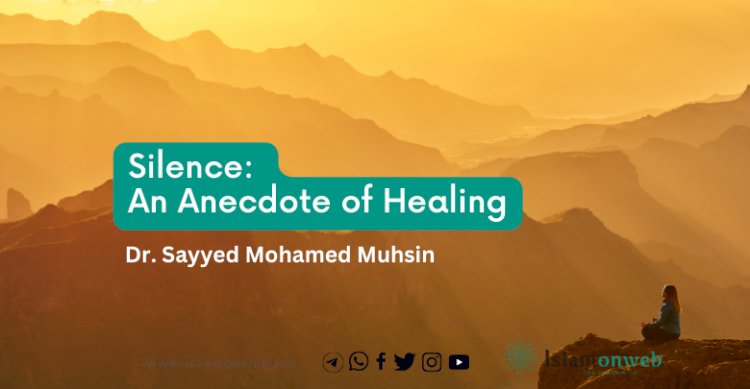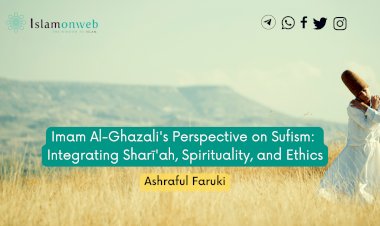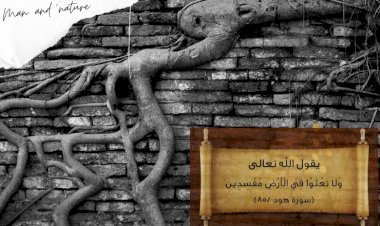Silence: An Anecdote of Healing
Have you ever heard a love song hummed by a fallen rose petal? Could you embrace the cuddles of a breeze that carries the aroma of candle flicker in which pain of partition had burnt? The silence between two words, are you able to listen to the feelings that do bridge in the middle of them? Do you miss the moments you connected deeply to nature once you had no YouTube, Facebook or Instagram?
Many might answer ‘no’ to the above questions in this highly preoccupied world order. But the door of ‘yes’ unbolts as soon as we mute ourselves and unmute others. Empty your canvas so that you can repaint it. Silence is an opportunity for healing and reclaiming, and moving. It is for listening to the sound of silence. Plugging silence for some time is to recharge the spirit that has diminished from us or already extinguished.
If someone is not still,
then he must be ill.
At first, silence is an action.
It then becomes inaction.
It was an absence of sound.
It is now a presence in the profound.
In both womb and tomb, we chose to be silent, but in between them, we picked absence from silence; thus, we are lost in the void. Silence is an envelope sent by those who care for us, let’s take a moment to open it, so we will not regret it later.
Yes, we are too full of ourselves to empty any space for others. So, we cannot actually peer within our own lives. Silence of mind is vital to freeing ourselves from overwhelming chaos and refilling it with the oxygen of positivity. When the focus is scattered in seconds and thoughts are distracted, mindful silence is healing.
Silence and stillness are what we need in this rush race of life. Whom are we competing with? What does that struggle yield other than strain, upheaval and pressure? Chasing the ‘big’ achievements, we lose the beauty in the minutia of things we inevitably need. In the early morning, we rush to screens searching for the loud claims without embracing what is with us and around us.
Be present in the moment, like a child. You see the transition in the mood of a child from sadness to happiness in the span of a second. They are neither in the past nor the future. But in the present. Just in the bliss of the present. It is a blessing. Almighty Allah introduced the awliyā’ in verse { There will undoubtedly be no fear for the close servants of Allah, nor will they grieve} (Yūnus: 62). Fear is about the future, and grief is over the past. If someone does not have both, it means he is in the moment he lives in. He is present in the matter of the moment. He is not a sleepwalker who misses the joy of the moment.
In Quran, the two synonymously used words for silence are sukūt and ṣamt. If the duration of silence is short, it is called sukūt, and if it is long, it is called ṣamt. In addition, sukūt is used for abstaining from saying anything, whether it is the truth or false, whereas ṣamt is used for refraining from saying falsehood only, not from the truth. See the examples of Quranic āyāt:
- Calmness and stillness (sukūt), especially in the heat of anger.
وَلَمَّا سَكَتَ عَن مُّوسَى ٱلْغَضَبُ أَخَذَ ٱلْأَلْوَاحَ {When Musa's anger calmed down he took up the Holy Tablets}(al-Aʿrāf: 154).
- Silence and abstinence from words (ṣamt)
وَإِن تَدْعُوهُمْ إِلَى ٱلْهُدَىٰ لَا يَتَّبِعُوكُمْ ۚ سَوَآءٌ عَلَيْكُمْ أَدَعَوْتُمُوهُمْ أَمْ أَنتُمْ صَـٰمِتُونَ { if you pray to them for guidance, do not respond to you? As far as you are concerned, it is all one whether you invoke them or keep silent}.
Spiritual landscapes of the inner self and deep personality will be augmented once we switch the mode from speaking to listening; thereby, treasurable nature befriends us and softly shares her ineffable stories. For a purpose, we come across waves, rainbows, sunbeams, shadows, and the like beautiful things in various segments of life; that is, they whisper a password, which posits our shape in order back and weaves the broken slices together. What’s more, the language of squirrel and woodlark is decoded, so we don’t cross their lines but spread smiles all the way we walk through. See the whisper of an ant mentioned in the Quran:
{Once in an expedition, he (Prophet Sulaiman) was marching with his army when they came across a valley of ants, one of the ants said: "O ants, get into your habitations lest Sulaiman and his army crush you under their feet without even noticing it.} (Al-Naml: 18)
This whisper shows the concerns of our fellow creatures around us. They need our attention. It may look the same when we see the long queue of ants marching their way forward. But each human being has a different story and biography, and so does each ant, but all creatures in the cosmos. The windows look the same, but the views it presents are different. Cars on a highway may look monotonous, but the pleasure or pain in each one of them is diverse.
The eyes look similar.
But the sights they absorb are dissimilar.
Most beloved people to us depart, leaving behind several unsaid secrets. To know them, we must listen to their deep silence and read their unspelled words. Many unheard voices surrounding us cry for our upkeep, but our noisy attitude diminishes their tones. When we listen, others unfurl their wings that, in essence, liberate our souls from plots of prejudices. There, we embrace the soundless but profound feeling of love, pain, nostalgia, and many other feelings. There, we correlate a symphony in the asymmetrical ends of a beaten life.
The moment we are able to hear an unspoken ‘sorry’, the world begins appearing utterly different to us. Time awaits, and silence heals. Silence is a vehicle that transports dreams of our internality to the externality, the need that fashions a balance between in and out.
As a rule of thumb, we have two ears and one tongue, and a justified proportion of their usage will bring about a paradigm shift in our perspectives. Silence is eloquent when it touches the heart and awakes the soul. Silence is an opportunity for creativity, clarity and relevance.
Come to silence and become silence!
At times, words are lousy neighbourhood;
It is safe not to go there.
About the author: Sayyed Mohamed Muhsin, PhD is Assistant Professor of Islamic jurisprudence at the International Islamic University Malaysia (IIUM), Kuala Lumpur. He also serves as Editor-in-Chief of Islamonweb-English (https://en.islamonweb.net/). He is an adjunct fellow at Guidance College, Houston, Texas and Darul Huda Islamic University, Kerala, India. His specialization is on contemporary juristic issues and Islamic biomedical ethics.
Disclaimer
The views expressed in this article are the author’s own and do not necessarily mirror Islamonweb’s editorial stance.
8 Comments
-

Thank you for writing this beautiful message Dr. And for me, silence is like a canvas where the unspoken colors of my thoughts and emotions blend. In those quiet moments, I find clarity and hear the whispers of my soul. The impact of silence on my life is profound—it's a sanctuary where I recharge, reflect, and connect with my innermost self. In the absence of noise, I discover strength, resilience, and the beauty of simply being.
-

I am not sure when the last time I’ve been practising “silence” in my daily activities, especially during peak times. This article makes me realize that sometimes we need to have that “silence session” for ourselves so that we can really be at the moment. Thank you so much Dr. for this insightful sharing. Really appreciate that.
-

-

Thank you for sharing this amazing writing, Dr. ???? ‘Silence and stillness are what we need in this rush race of life.’ This sentence reminds me of the fact that Islam encourages us to sometimes be silence, which is proven in our everyday worship (salah). 1. Allah has created a specific timing for salah beautifully so that we can take a break from the worldly life by spending some time to connect with Him. 2. Even during the salah, we are told to have (طمأنينة = tranquility) in between gestures so that we can take a moment and be fully aware on our prayer throughout the salah. May Allah make it ease for all of us.
-

Alhamdulillah! A great piece of artistic work. Masha Allah, highly intellectual, philosophical and poetical at the same time. This piece of work is not meant for the ordinary minds. It is meant for the great minds of the Ummah. Keep up the good work! ???? Insha Allah, Dr. you can go many levels higher in your intellectual pursuit. My prayers are there for you.
























Leave A Comment